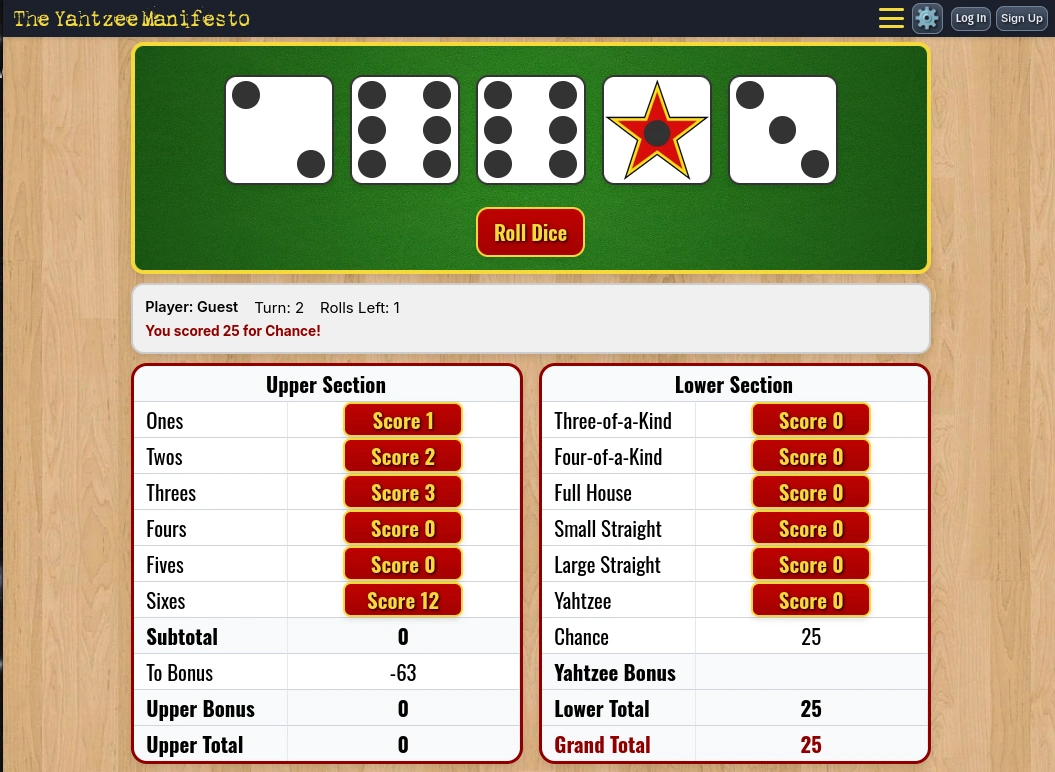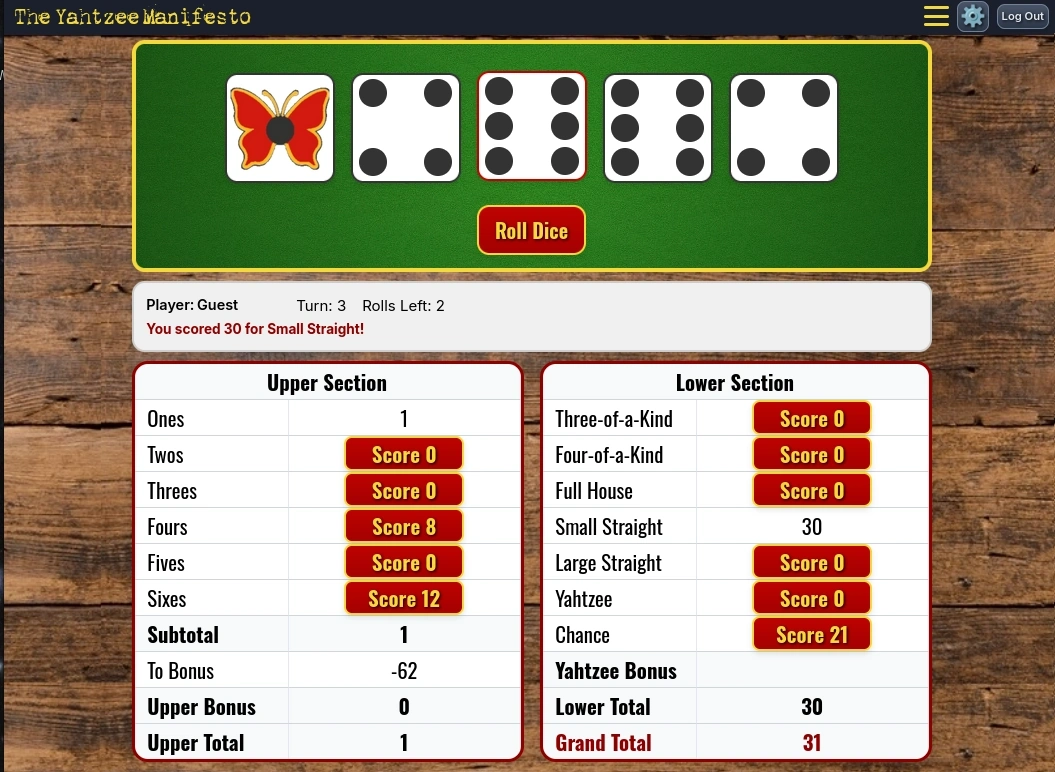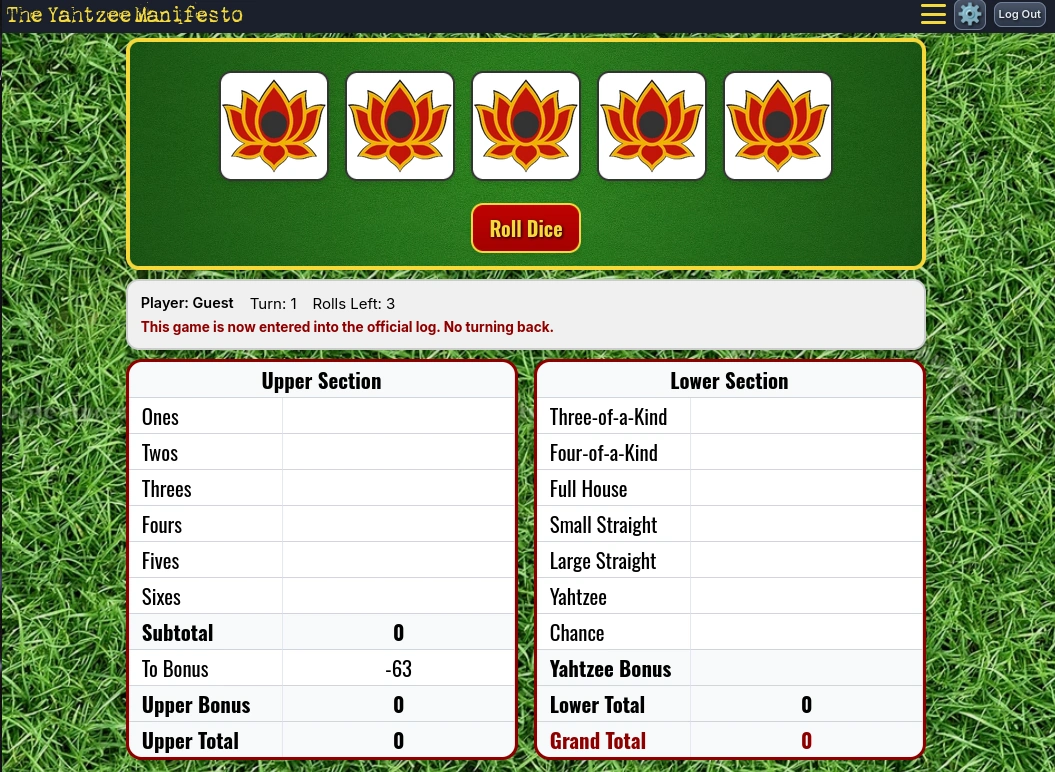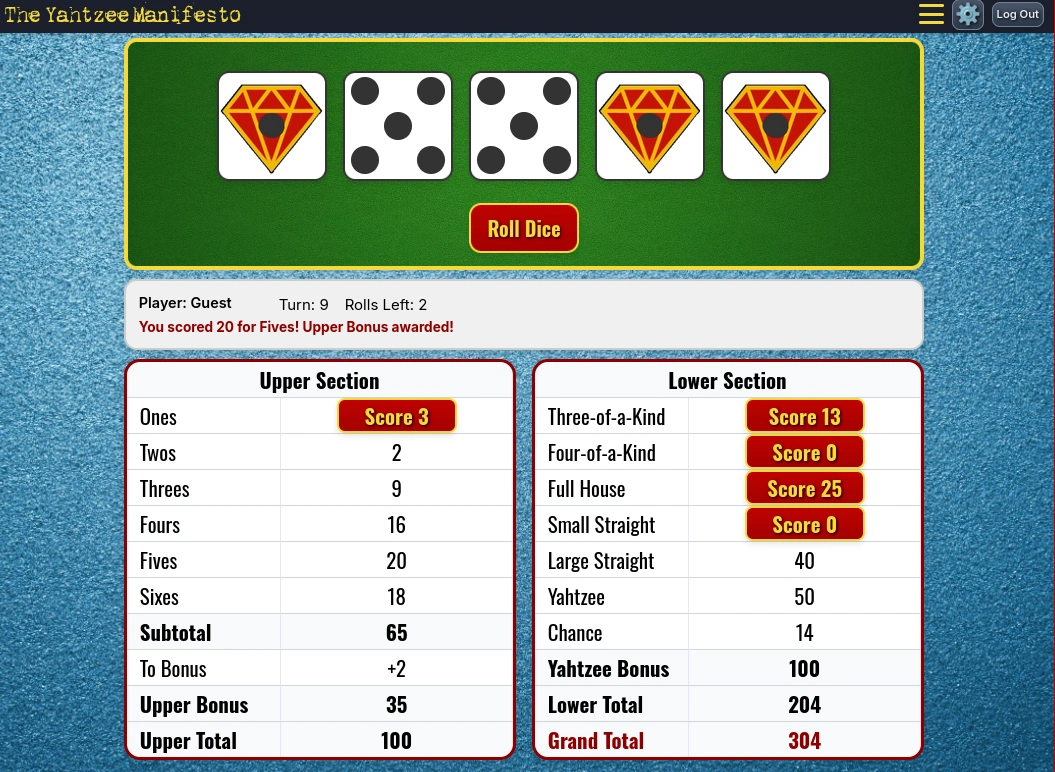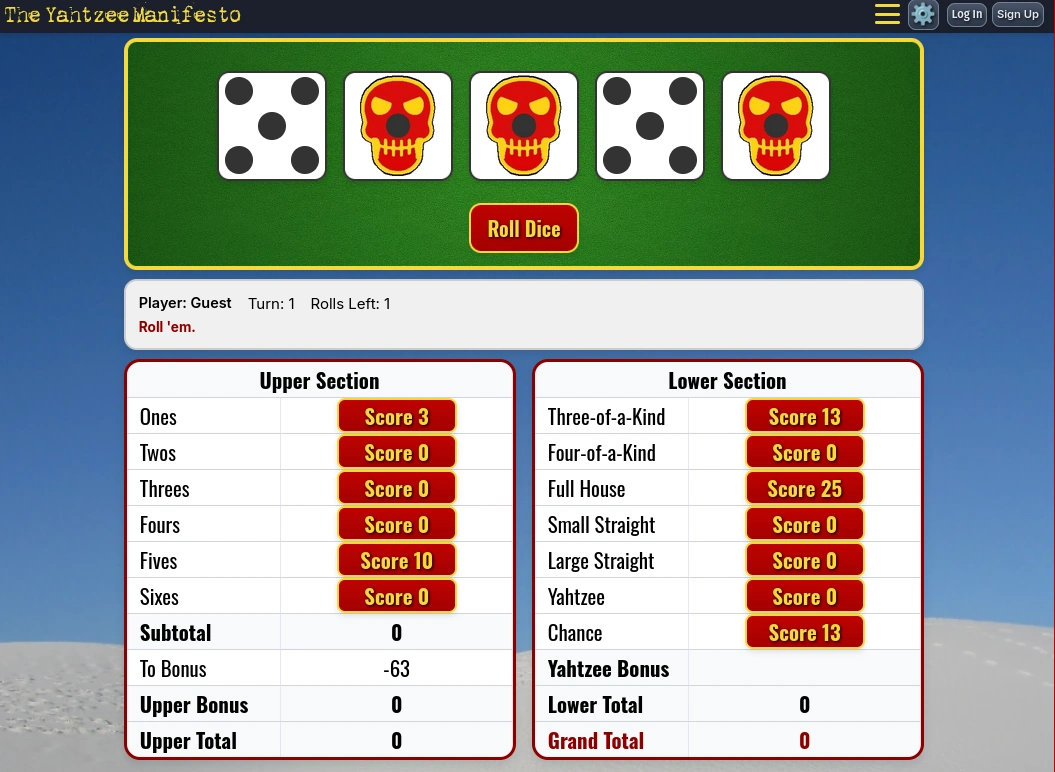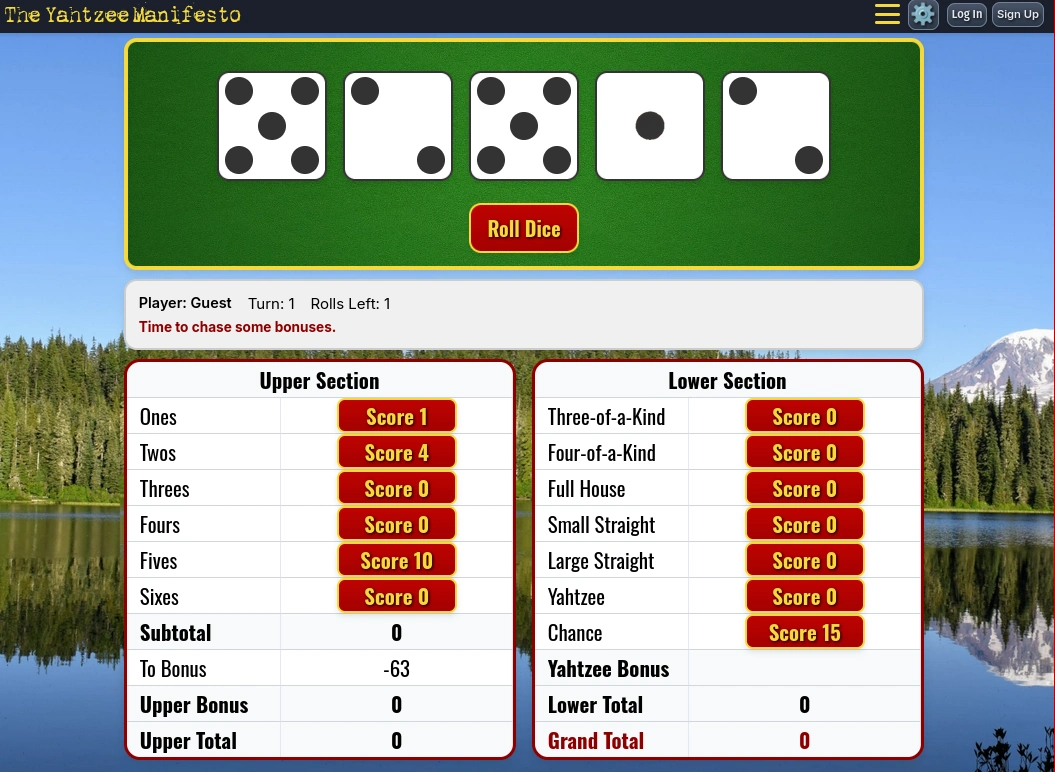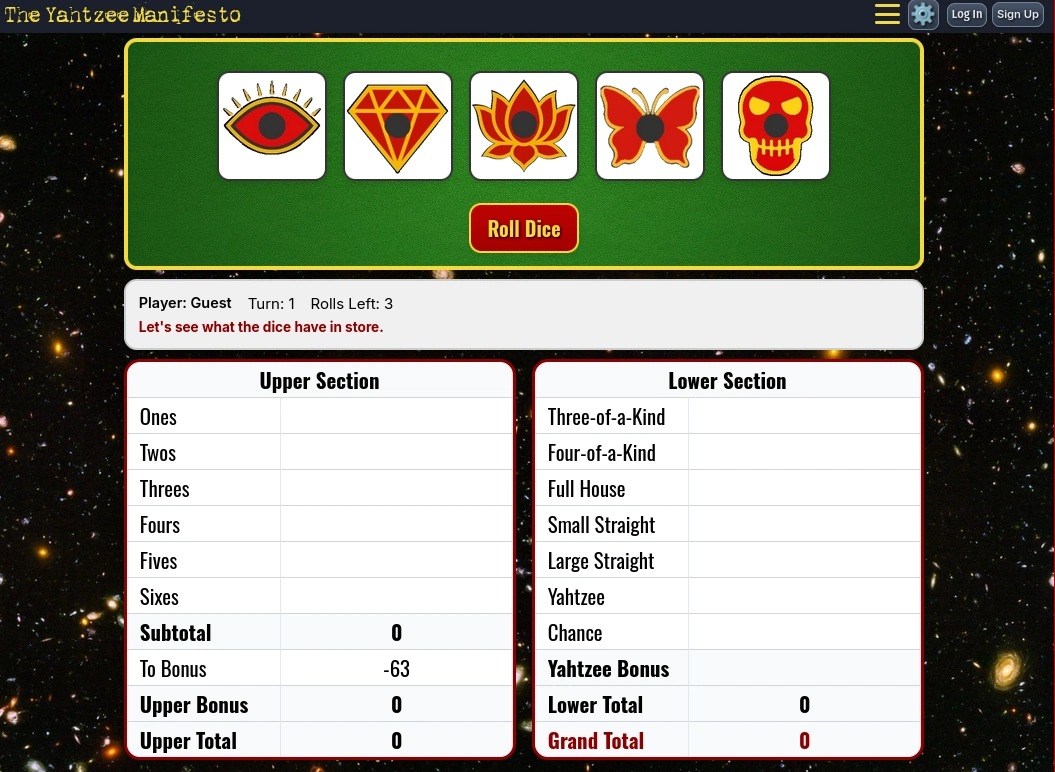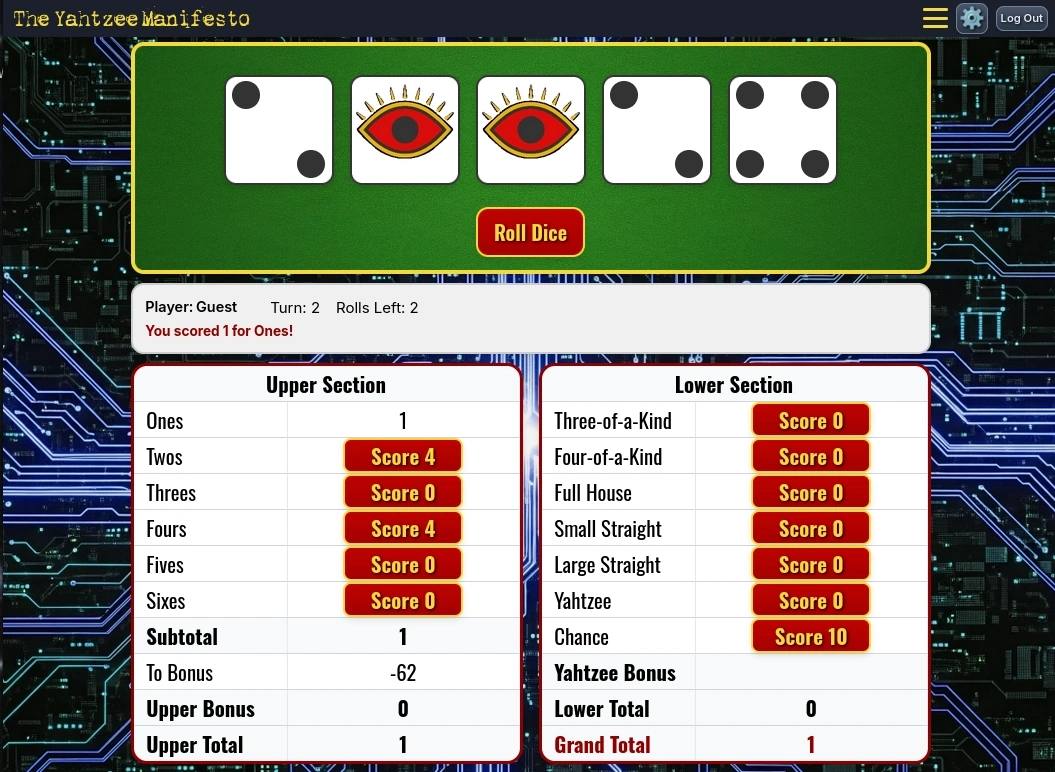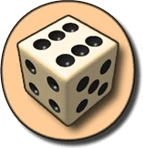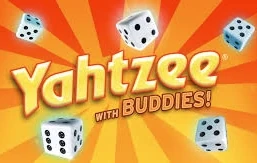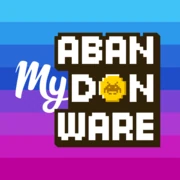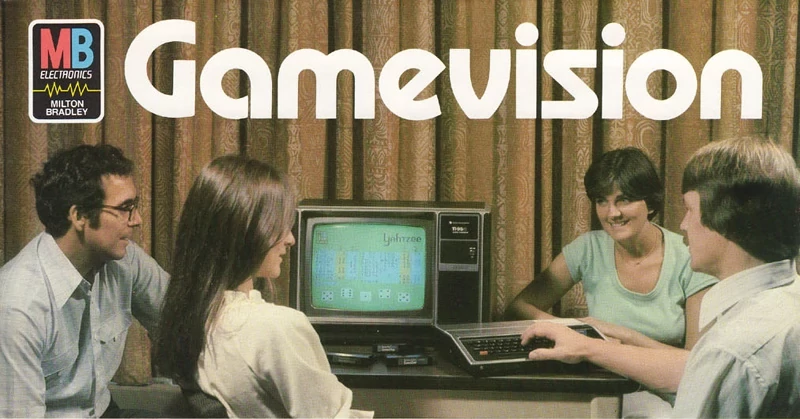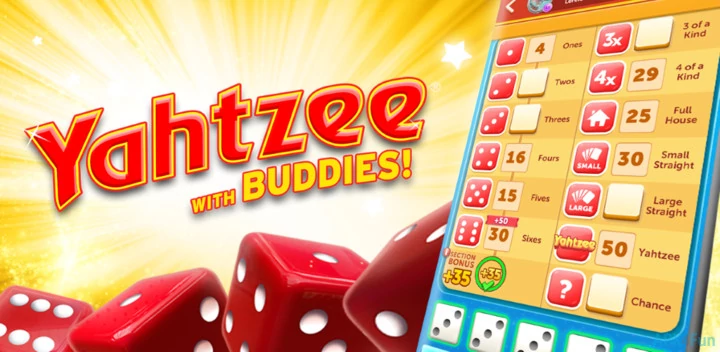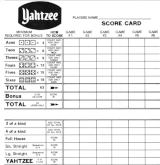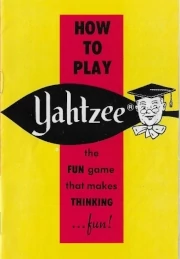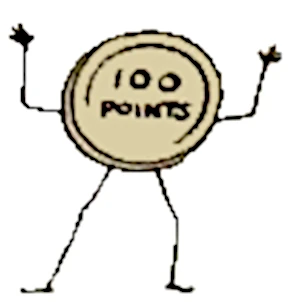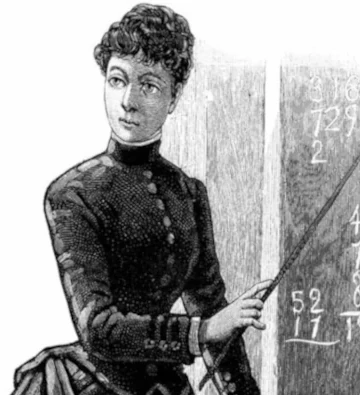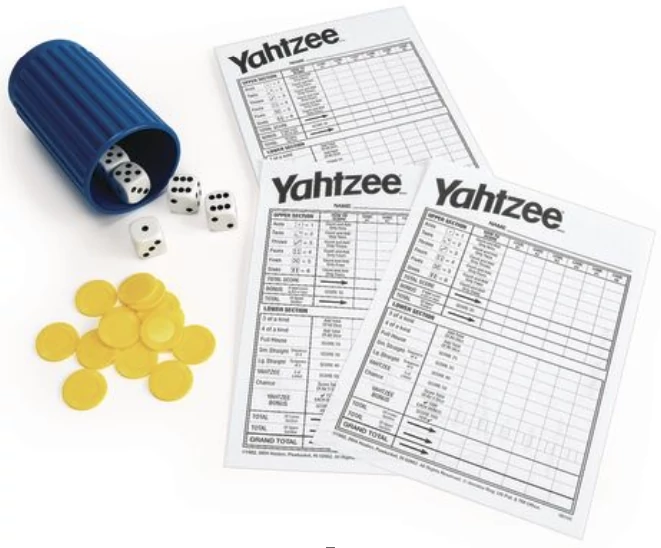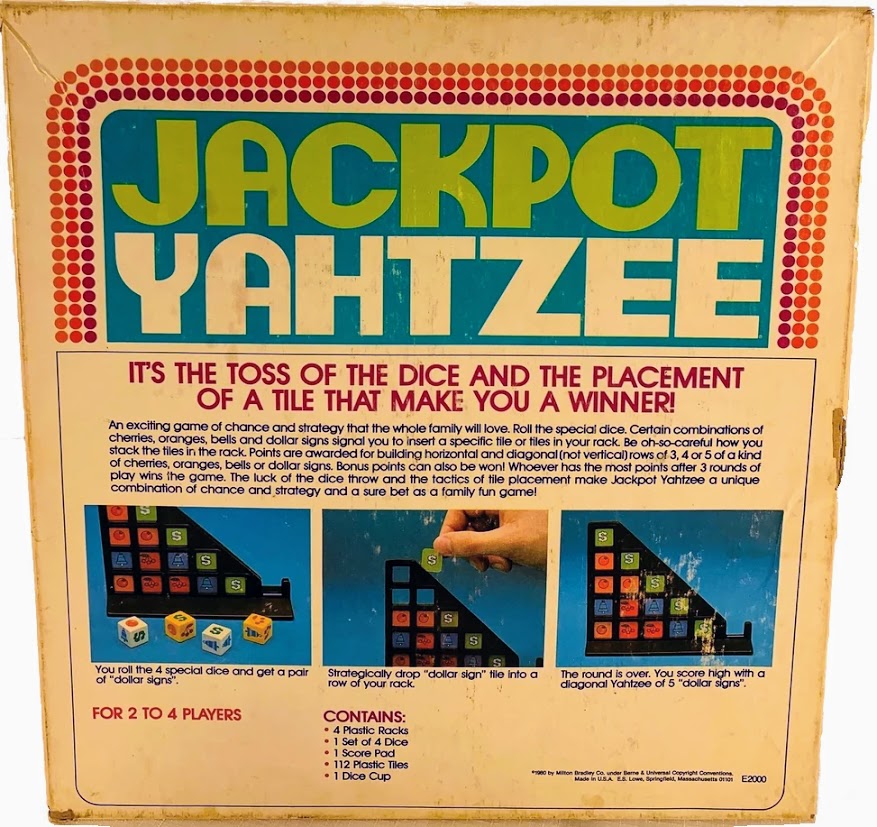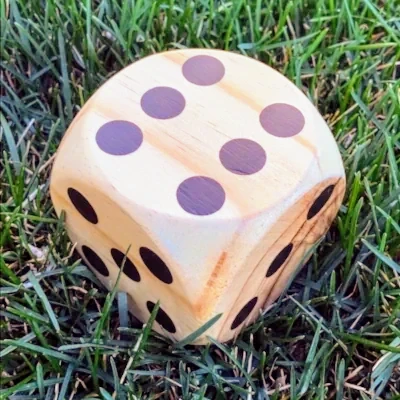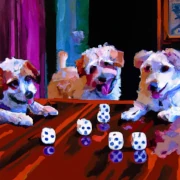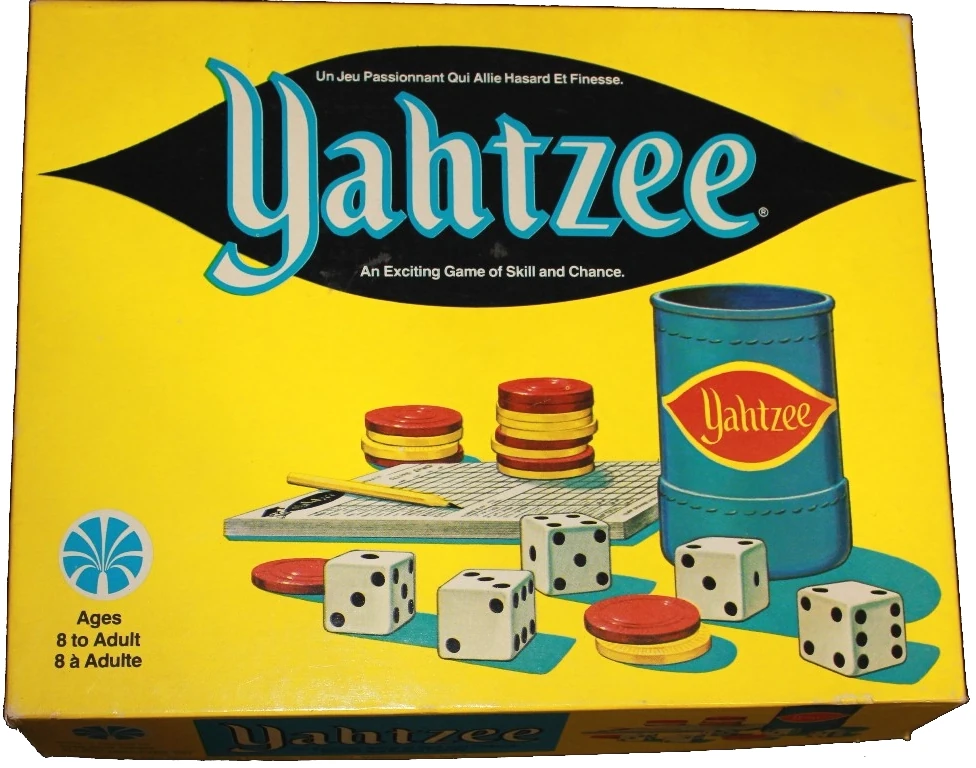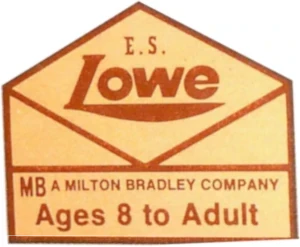Yahtzee Online & Unblocked
Welcome to The Yahtzee Manifesto, your premier destination for playing online Yahtzee free. Whether you're a dice-rolling veteran or new to the game, our digital platform offers everything you need to enjoy this classic favorite!
Play Yahtzee Online 🎲- 100% Free Online Yahtzee
- No registration or log-in required
- Instant play - no downloads necessary
- Unblocked, single-player action
- Personal high score tracking
- Chance to enter the Yahtzee Hall of Fame
Play Yahtzee Online
If you’ve ever thought, “I want to play Yahtzee online,” you’ve landed in the right place. The Yahtzee Manifesto offers a completely free online Yahtzee game - no downloads, no sign-ups, just classic dice-rolling fun. Track your Yahtzee high scores, challenge your strategy, and compete with players around the world - all from your browser.
🎲 Play Free Yahtzee OnlineComputer Yahtzee takes the beloved dice game to the next level. Say goodbye to scratched-up score pads and dice bouncing off the table. Say hello to fast-paced, endlessly replayable Yahtzee solitaire online. It’s unblocked, mobile-friendly, and totally free. No app. No hassle. Just strategy, luck, and rolling thrills.
Why Play Online?
- Track and Improve: Log in to monitor your scores and see how your strategy evolves over time.
- Compete Globally: The new Daily Challenge matches you directly against players from around the world in a head-to-head game.
- Climb the Leaderboard: Join a diverse community of players and see where you rank in real time.
- Experiment Freely: Test out different approaches without pressure - perfect your game at your own pace.
- Master Your Strategy: Track your progress with expanded player statistics and climb the global leaderboards to prove your skills.
- Personalize Your Experience: Choose your own custom dice and background themes to create a game that's uniquely yours.
- Anytime, Anywhere: Our game is unblocked and browser-based, so you can play on any device, whenever you want.
How to Play Yahtzee Online - Step-by-Step
Need a refresher? Read the official Yahtzee rules. Ready to roll? Here's how to play:
1. Register to track your scores - or play as a guest with no login required. Hit the button to roll the dice.
2. Select which dice to keep, then roll the rest again.
3. Roll up to 3 times per turn and then choose where to record your score on the board.
Start a New Game: Custom Dice & Personalization
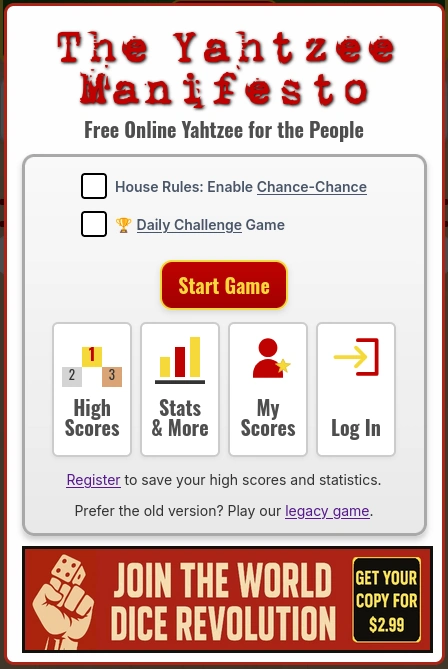
Choose Your Game
Start a classic game anytime or test your skills in the Daily Challenge against players worldwide. Your next game is just a click away.
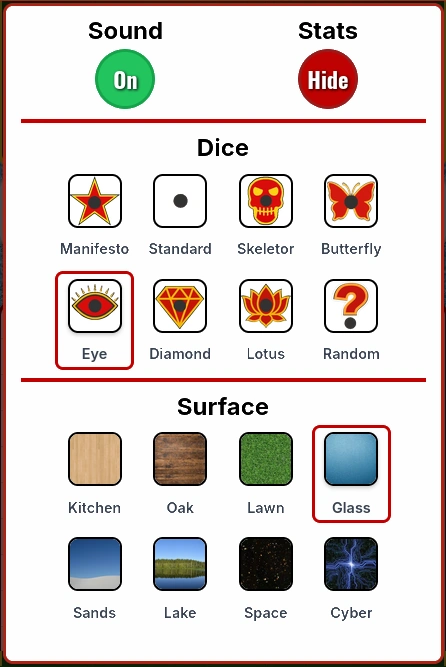
Customize Your Look
Personalize your game board with custom dice sets and unique background themes. Make your Yahtzee experience truly your own.
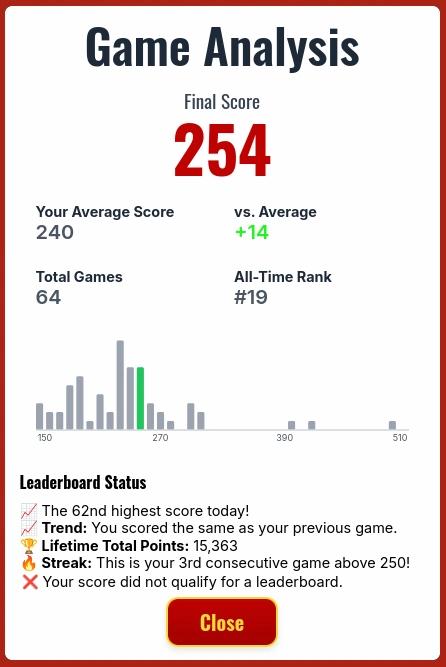
Analyze Your Stats
After each game, dive into detailed statistics and analysis. Track your progress, study your habits, and climb the global leaderboards.
Game Modes & Advanced Stats

At The Yahtzee Manifesto, we believe that understanding your gameplay is the key to improving it. Beyond the final score, the real story is in the data. Your gameplay contributes to a growing body of research into probability and optimal strategy. We analyze the raw data from every game to provide you with advanced statistics that offer deep insights into your habits, luck, and strategic decisions. These aren't just numbers; they are tools to help you refine your tactics, understand your playstyle, and ultimately, become a better Yahtzee player.
Full House Diss Index (FHD)
This metric is a measure of your strategic mastery of the Full House. The FHD rewards the tactic of "dissing," or intentionally delaying, an early Full House opportunity to aim for a higher score. Using an exponential scaling formula, it grants a higher value to players who successfully defer taking a Full House until later in the game. This index helps you analyze your risk-taking strategy regarding one of the most pivotal categories in the game.
The formula is calculated as FH(d²) - f, where d is the number of times you "diss" a Full House, and f is the number of superfluous Full Houses rolled after you've already scored the category.
Serendipity Quotient
How well do you capitalize on luck? The Serendipity Quotient measures exactly that. It is the ratio of your raw score (your Grand Total minus any bonuses) to your Serendipity Baseline. This percentage represents how effectively you converted the luck of your rolls into actual points. The Serendipity Baseline itself is a running total of all possible points from the first roll of each turn, serving as a pure measure of your luck. A high quotient means you're making the most of the dice you're given.
Strategic Bias Indicator
This tool provides a single score from -100 (Lower Section Bias) to +100 (Upper Section Bias) that measures your overall strategic leaning. A score close to 0 indicates a balanced playstyle. By analyzing your average scoring efficiency for each section, this indicator helps you understand your subconscious strategies and identify if a more balanced approach could improve your final score.
Play the Old Version
It may lack the latest bells and whistles, but our previous game still looks great and plays as smooth as ever! A more rudimentary data collection limits player statistics and game analysis, and therefore does not include advanced metrics found in the current version, such as the Full House Diss (FHD) Index. But for a classic, no-frills game of Yahtzee, it remains a great option.
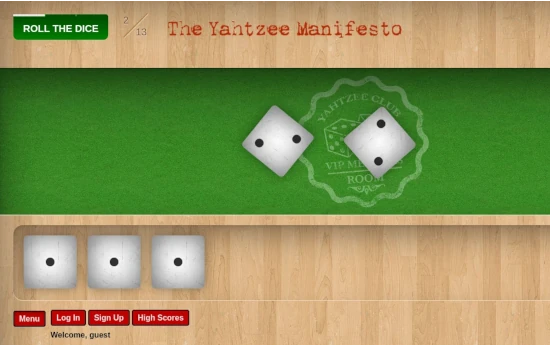
The Yahtzee Manifesto Hall of Fame
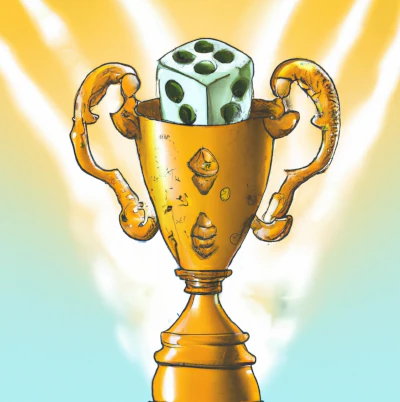
After completing all categories, the game automatically calculates your final score. Want to dominate the leaderboard? Master our proven Yahtzee strategies to maximize points with every roll and climb the rankings!
Perfect your skills with single-player online Yahtzee! Test new techniques and develop tactical instincts without pressure. Always free, unblocked, and available 24/7 for unlimited practice.
Whether you're a casual player or 24/7 Yahtzee enthusiast, our online Yahtzee game is your training ground for mastery. Even the best Yahtzee strategies require practice to execute flawlessly. Build your expertise through repetition and discover the subtle nuances that separate good players from great ones.
Beyond entertainment, the Yahtzee Manifesto serves a greater purpose. Your gameplay contributes to ongoing research in probability and statistics, helping advance our understanding of dice probabilities and optimal scoring strategies. Every roll you make helps unlock new insights into this fascinating game of chance and skill.
The Origins of Online Yahtzee
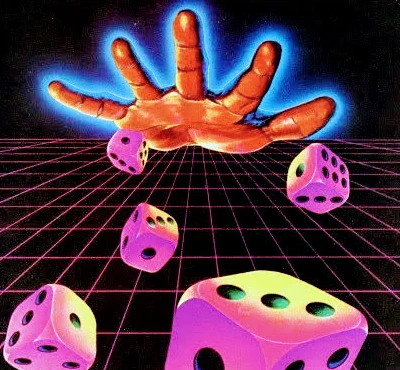
Since its 1956 debut, Yahtzee has evolved from a tabletop favorite to a digital phenomenon. Today, millions of enthusiasts are discovering the joy of Yahtzee online, transforming how this classic game is played in the 21st century. The journey of online Yahtzee began in the 1970s with early computer adaptations, but it's the recent surge in smartphone technology that has truly revolutionized the game's accessibility and popularity.
Playing online Yahtzee offers unparalleled convenience and connectivity. Gone are the days of struggling to find opponents or being limited by physical dice and scorecards. With online Yahtzee, players can enjoy games around the clock, connecting with friends across the globe or matching up with random opponents at any hour. The digital format also streamlines gameplay, with automatic scoring and rule enforcement enhancing the experience for both newcomers and veterans alike.
The rise of online Yahtzee reflects broader trends in gaming and technology. While some purists may prefer the tactile feel of physical dice, the advantages of Yahtzee online are undeniable. From the ease of smartphone play to the social aspects of global gaming communities, online Yahtzee has breathed new life into this beloved game. As technology continues to advance, we can expect online Yahtzee to evolve further, potentially incorporating virtual or augmented reality elements. Yet at its core, whether played with physical dice or on a digital platform, Yahtzee remains a game of chance, strategy, and fun - now more accessible than ever in its online form.
Classic Yahtzee Video Games
As home computers and video game consoles began to enter the mainstream, Yahtzee made an early leap from the tabletop to the screen. Its widespread popularity and straightforward mechanics made it an ideal candidate for digital adaptation, even on primitive hardware with limited processing power.
Though it’s possible that experimental versions of Yahtzee were programmed onto massive mainframe computers before this era, the real breakthrough came with the rise of homebrew computing. In the early days of video games, hobbyist programmers in garages and local computer clubs took the initiative to digitize Yahtzee. These early efforts didn’t receive the spotlight that arcade hits like Pac-Man or Space Invaders did, but they were instrumental in keeping Yahtzee relevant and in advancing key technologies - particularly random number generation (RNG) - that remain central to digital gaming today.
Creating a convincing digital version of Yahtzee was no simple task. A real die naturally produces a random result, but replicating that randomness digitally is far more complex. Early computer systems lacked the power to generate high-quality pseudo-random numbers, resulting in predictable dice rolls and limited gameplay variety. In some cases, digital versions of Yahtzee would omit rules like the Yahtzee Bonus or Joker because of programming constraints. Still, these rudimentary versions laid the groundwork for what would eventually become the seamless, sophisticated Yahtzee online experience.
Despite technical limitations, the allure of electronic Yahtzee persisted. As personal computers grew more powerful, and as video game publishers took notice, more robust adaptations of the game began to appear. These commercial releases were a mixed bag. Some stayed true to the core rules of the game, while others took creative liberties. Yet each iteration helped refine and expand the digital Yahtzee experience, introducing new players to the game and propelling it further into the digital spotlight.
Today, fans of Yahtzee online can still explore these early digital versions thanks to emulators and ROM files. Emulators allow modern computers to mimic the hardware of classic gaming systems, making it possible to relive the charm of retro Yahtzee video games. Sites like RetroArch offer a wide range of emulators, and many classic Yahtzee games are available as freeware or abandonware. However, players should always ensure they comply with copyright laws- typically, owning the original game is a prerequisite for legally downloading a ROM.
These early electronic versions are more than nostalgic curiosities; they represent a key chapter in the evolution of Yahtzee. Without them, the vibrant world of Yahtzee online as we know it might never have come to be. Their role in refining RNG systems, adapting gameplay for digital platforms, and expanding the game’s reach laid the foundation for today’s high-speed, globally connected Yahtzee experience.
Computer Yahtzee: Major Releases
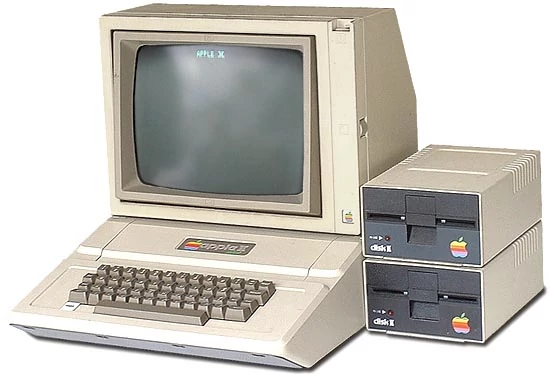
Yahtzee, 1978
Apple II
The Apple II was personal computing’s original pioneer. Created by Steve Jobs and Steve Wozniak, the computer opened the door to software that was aimed at the general public. And thirty years later, the same company would revolutionize computing yet again with the release of the first smartphone, lighting the fuse of online Yahtzee.
Development of the Apple II began in 1976 and it hit the market the following year on June 10. The machine featured 4 KiB of RAM, upgradable to 48 KB, and retailed for a maximum of $2,638 (equivalent to $11,266 in 2020). Its claim to fame was its support of full color graphics. Personal Computer World wrote in a 1978 review that “"no-one has colour graphics like this at this sort of price". Apple’s familiar rainbow-colored corporate logo was designed as a way to emphasize this capability.
---> Play the 1978 Apple II version of Yahtzee <---
Yahtzee came out for the Apple II in 1978 and is considered to be the first video game of its kind. The game’s first step in its evolution from the tabletop to online Yahtzee was a halting one. Unfortunately, it didn’t take advantage of Apple’s color capabilities. The game was instead text-based, presented as white text on a black background. Gameplay was a standard replica of the original board game and an option was included to play Yahtzee against a computer opponent. While bells and whistles may have been lacking, robbing the game of a chance to showcase Apple II’s power, the Yahtzee game represents the initial faltering steps into a digital world.
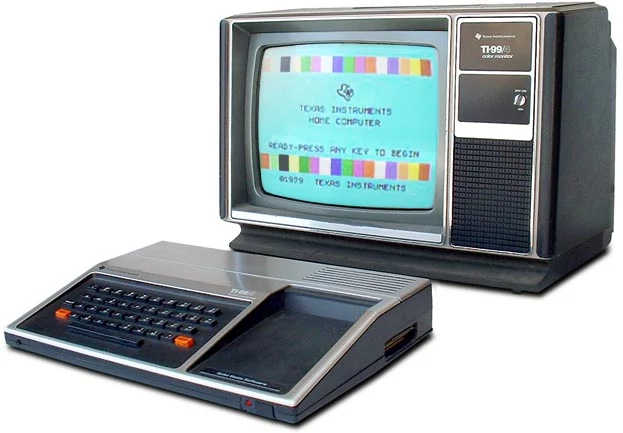
Yahtzee, 1979
Texas Instruments TI-99/4
In November 1979, Texas Instruments released the world’s first 16-bit home computer, the TI-99/4. It’s “blistering fast” 3MHz CPU powered some of the day’s most interesting video games, like Parsec, Tombstone City: 21st Century, and Munch Man. Packing a paltry 16K RAM, the TI-99/4 wasn’t really a speed demon. Its primitive components were further hindered by a duplicated interpretation of its coding, making for an incredibly slow machine.
Seven game cartridges, all consisting of Milton Bradley’s Gamevision line, were available for the Texas Instruments home computer upon its launch. To capitalize on the name-recognition of its existing products, the cartridges were based on popular board games in the company’s portfolio. These types of games were slow-paced, allowing them to run more smoothly on the TI-99/4. The original lineup consisted of Yahtzee, Connect Four, Hangman, Zero Zap, Card Sharp, Stratego, and a Gamevision demonstration cartridge.
The Yahtzee computer game was true to the classic tabletop version, including proper use of the Yahtzee Bonus and Joker rules. While there was not an option to play variants like Triple Yahtzee or Word Yahtzee, the challenge game mode offered a twist. Playing the computer in one-player or against another human in two-player mode, each player will throw the same five dice on the first roll of each turn. Winning the game in Challenge mode will highlight the differences in players’ strategies.
Working for Milton Bradley Electronics, computer software programmer Elaine Henshon programmed several of the early games, including Yahtzee, Connect Four, and Stratego. The Yahtzee game retailed for $24.95. Many of the Gamevision cartridges turned out to be defective and a recall was issued. The following year, Texas Instruments independently re-released Yahtzee with a $29.95 price tag.
Milton Bradley’s initial foray into cartridge-based video games was not the huge success that it had hoped for. The TI-99/4 proved to be an unpopular gaming system, due in large part to the lag in processing speed. New systems were on the horizon and Milton Bradley was keen to try its luck with a next-generation console. All Gamevision titles were pulled from the market in 1980. Milton Bradley would bide its time until a worthy successor to the Texas Instruments TI-99/4 appeared.
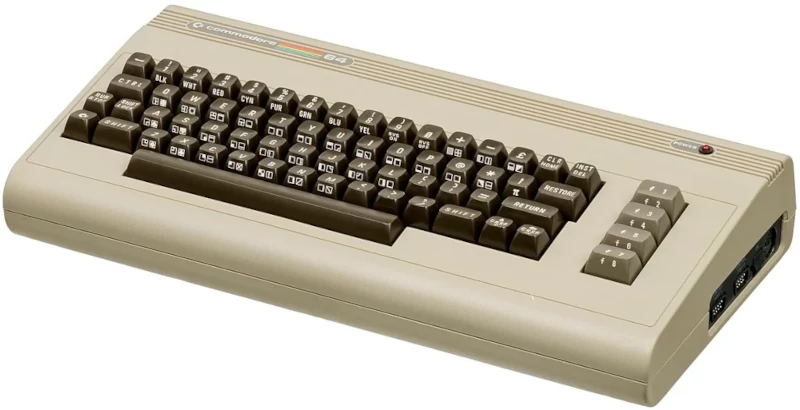
Yahtzee, 1983-1991
Commodore 64
Like Texas Instruments, Commodore International manufactured other types of electronics before moving into personal computing. The jump from calculators and typewriters to home computers was made possible by the company’s acquisition of MOS Technology, the group responsible for the 6502 microprocessor that powered popular machines such as Apple II, Atari 2600, and Nintendo Entertainment System. It allowed Texas Instruments to produce their chips in house and pass their savings on to customers.
The Commodore 64, also known as the C64 or the CBM 64, was released in August 1982. It went on to become, by some claims, as the best-selling computer model of all time. During its 12-year production run, Commodore sold over 17 million computers worldwide and software developers produced over 10,000 commercial programs. The C64 retailed for just half the price of an Apple II and led the market of low- to mid-end home computers for most of the late 1980s.
No fewer than four different versions of a Yahtzee game were released for the Commodore 64. These all adhered to standard Yahtzee rules and did not include variations to the game that would come with later systems. One notable feature of the 1986 game produced by Robtek, Ltd. illustrates the types of quality control lapses that came with the whirlwind of early video game development. The game was for the English language market but Robtek also produced games in German and Dutch. The final release of Yahtzee mistakenly included a single Dutch word, confusing English-speaking gamers. The word “waarheen”, or “where to” inexplicably appears on screen when the game asks you to select the category to enter your score.
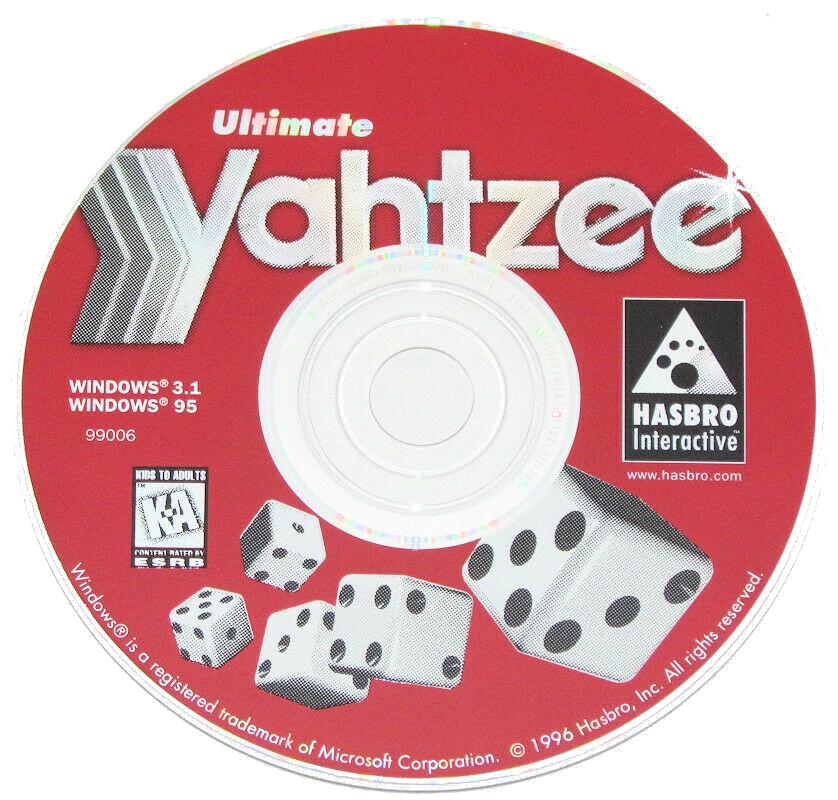
Ultimate Yahtzee, 1996
Microsoft Windows
Microsoft’s Windows 95 operating system was released to great fanfare in August 1995. It touted a much-improved graphical interface over its predecessor, Windows 3.1x, and had moved to a 32-bit architecture. What are now considered trademark features of Windows systems, such as the ‘Start’ button and taskbar made their first appearance. With the release, Windows was able to put a chokehold on the personal computing market.
The ubiquity of Windows on the 1990s PC landscape reaped a bountiful harvest of Yahtzee games but the most memorable was 1996’s Ultimate Yahtzee. It introduced multiple game variations beyond the classic version, like Battle Yahtzee where players try to knock each other’s dice to improve their score. The first tabletop Yahtzee variation, 1972’s Triple Yahtzee, makes a memorable appearance in a video game format.
---> Play the 1996 Windows version of Yahtzee <---
Gamers applauded Ultimate Yahtzee’s attention to detail in the ability to simulate shaking the dice in the cup through use of the mouse and cursor. But as it was still early in the internet’s availability to the public, online Yahtzee was not yet brought forth unto the world.
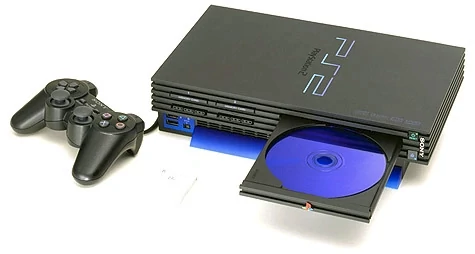
Family Game Night, 2009
Playstation 2
Developed and marketed by Sony Computer Entertainment, PlayStation 2 was first released in 2000 as the successor to the original PlayStation. It is the best-selling video game console of all time, having sold over 155 million units worldwide by March 31, 2012 when Hasbro stopped providing sales figures. Over 3,800 titles have been released for the PS2, with over 1.5 billion copies sold. Game software for the PlayStation 2 was typically distributed on DVD-ROM and its ability to play the discs served as a secondary selling point.
PlayStation 2 users were able to play some games over the Internet, using dial-up or a broadband connection. The PlayStation 2 Network Adaptor was required for the original models. Gamers complained that its online services weren’t up to snuff compared to its competitors. Sony didn’t yet have a consolidated online gaming system or store. Those were left up to the individual game developers to sort out and the results proved lackluster.
Hasbro tried to up the ante in 2009 when six classic board games were featured in the officially-licensed Family Game Night for Playstation 2. The game included wireless support for multi-player competition but not a true online game option. Released on March 18th, players could choose from Battleship, Boggle, Connect Four, Sorry!, Sorry! Sliders, and Yahtzee. Scrabble was included in the Xbox 360 version a year later.
With such an abundance of games, there isn’t much room for Yahtzee variations but Family Game Night still had a few tricks up its sleeve. One unique feature is ‘Wild Dice’ game mode where the player can change the die to whichever number she prefers. The vibration-feedback elements in Playstation 2’s controllers are expertly utilized to enhance the simulation of a dice roll. And perhaps best of all, serving as game host and guide for all seven games in the release is none other than Mr. Potato Head himself.
Yahtzee Handheld Game
Electronic handheld Yahtzee games were the precursor to the smartphone era of full online gaming. The similarities between the two systems are obvious - both enable players to play Yahtzee on the go. Gamers could finally play in the park, for example, without the need for dice or scorecards. Hasbro dipped their toe into the waters of mobile electronic Yahtzee in 1995 with the release of the first model, and it proved to be a smash. Enthusiasts had been clamoring for new ways to play their favorite dice game and the Yahtzee handheld game scratched that itch.

New designs and concepts for the Yahtzee handheld game continued to emerge over the following decades, including handheld versions for Yahtzee variants like Yahtzee Jr. Electronic handheld games merged the best of computer Yahtzee with the tabletop classic. Players weren’t tethered to their home computers in order to enjoy the game but still reaped the benefits of electronic scorekeeping and high score records. While they proved to be a great way to play solitaire Yahtzee, the social aspect was sorely missed. Fortunately, a solution was just over the horizon.
Yahtzee with Buddies
The dream of mobile, multiplayer electronic Yahtzee was finally within reach when the world’s first smartphone arrived in 2007. As the technology matured, developers created thousands of apps to cater to the needs of a new marketplace. The smartphone platform spurred innovation in mobile gaming and it wasn’t long before the full power of online dice was unleashed with the original Yahtzee app.
Dice with Buddies launched in 2012, embracing all that mobile internet gaming had to offer. Players now truly entered the internet age and were able to play online Yahtzee with all of the social connectivity that it provided. In addition to the standard solitaire mode that had long been common in electronic Yahtzee, the app could connect users from around the world with each other in virtual Yahtzee games. An ability to link to a player’s Facebook account and an in-game chat feature let friends roll a game from anywhere.
The app was developed by Scopely, Inc. as a Yahtzee game without the name or blessing of Hasbro. Like a long line of unofficial computer games before it, the company faced few legal risks even though it featured identical gameplay to the original. Copyright law protects games’ names and branding but the actual game mechanics remain in the public domain. Dice with Buddies was able to capitalize on the popularity of Yahtzee and became an immediate hit.
Annual sales have grown steadily since its release, a rarity in the mobile games market. That success caught Hasbro’s attention and the two companies were eventually able to conclude a licensing deal. As a result, Scopely released Yahtzee With Buddies, essentially the same game as their original app but now partnered with gaming giant Hasbro. Scopely was able to scale up quickly, outsourcing some of the development and translation work that was needed for the new international markets that it could now access through the new corporate partnership.
Yahtzee With Buddies was released in April 2015 on iOS, Android, and the Apple Watch. The app saw more than 1 million downloads in its first four days. Digital Yahtzee had rocketed to the stratosphere. Free Yahtzee online single player? Yahtzee with Buddies takes it to another level with social connectivity.
The Future of Playing Yahtzee Online

Nearly half a century after its first appearance on computer screens, Yahtzee online continues to thrive as a dynamic and evolving digital experience. The road to success has included its share of missteps, including early versions with limited internet capabilities, clunky interfaces, and local-only multiplayer. Many beloved variants like Word Yahtzee, Triple Yahtzee, and World Series of Yahtzee still await proper video game adaptations. Yet the game's continued relevance is a tribute to the developers and programmers who have faithfully recreated the thrill of rolling dice in a virtual format.
Although some traditionalists still prefer the feel of physical dice and handwritten scorecards, the benefits of online Yahtzee are hard to ignore. Digital platforms have broadened the game’s appeal, making it more accessible and social than ever. Players can now connect with opponents around the world, track high scores through global leaderboards, and enjoy real-time multiplayer features that enhance both casual and competitive play.
And this is just the beginning. As virtual and augmented reality technologies advance, the next phase of Yahtzee online could bring fully immersive, three-dimensional gameplay. Picture rolling dice across a holographic board or playing in a virtual room with friends from different time zones. These possibilities are rapidly becoming more feasible, pointing to a future where Yahtzee evolves beyond screens entirely.
What sets Yahtzee apart is its remarkable ability to adapt. From physical tabletops to electronic handhelds and now to mobile apps and online platforms, the game has continuously embraced new technology without losing its core identity. As long as there is a desire to play Yahtzee online, new innovations will continue to shape how the game is experienced.
The world’s most iconic dice game has outgrown its original format, and its future remains wide open. Whether through familiar gameplay or entirely new forms yet to be imagined, Yahtzee online is well-positioned to remain a timeless favorite for generations to come.
Learn More about Playing Yahtzee
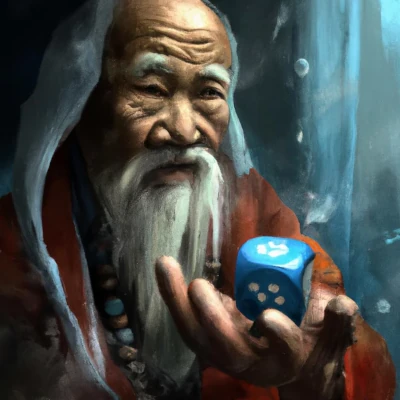
Classic Yahtzee builds social bonds, but who doesn’t love to play free Yahtzee unblocked? Either way, don't turn up to the table unprepared. Check out these selections from The Yahtzee Blog for expert commentary and game analysis. Our comprehensive guide to all things Yahtzee will help you build a solid foundation for your games ahead.
Bringing you the best in Yahtzee propaganda and indoctrination, the Blog reports on the latest gaming news and tournament results along with unique insights that only the World Yahtzee Institute can provide. We also offer tips and tricks for mastering the game, including strategies for maximizing your score and improving your odds of rolling a Yahtzee. Before you know it, you'll be prepared to take on even the toughest opponents.
If you're new to the game, we've got you covered with beginners' guides and step-by-step tutorials. And for experienced players, we offer in-depth analysis of advanced strategies and techniques. So don't be caught unprepared at the Yahtzee table. Visit The Yahtzee Blog today and start building your skills and knowledge of the game. Whether you're looking to play Yahtzee online or in-person, our expert guidance will help you dominate the competition.


